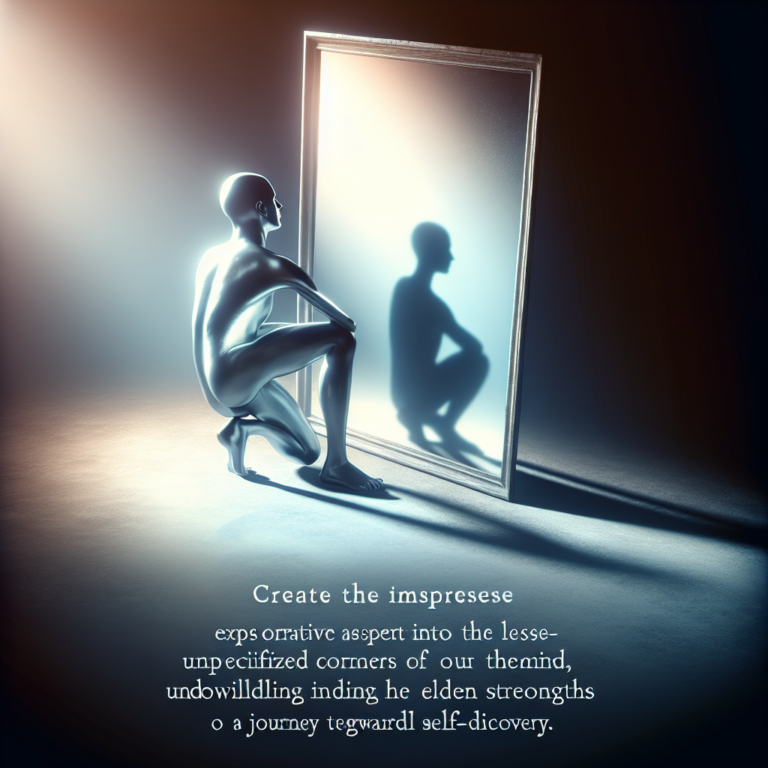Have you ever heard the saying “fake it till you make it”? It’s a concept that encourages you to consciously project the qualities and characteristics of the person you aspire to be. By embodying that persona, you’re essentially pretending until it becomes your reality. It might sound counterintuitive, but this approach can be surprisingly effective in achieving personal growth and success. So, the next time you find yourself doubting your abilities, remember that faking it can actually help you make it.

Definition of Fake It Till You Make It
The concept of “Fake It Till You Make It” refers to the act of pretending or behaving as if you possess the qualities or skills necessary for success, even if you may not fully have them yet. By consciously focusing on the person you intend to become and embodying the persona you aspire to be, you are essentially faking it. This expression encapsulates the idea that through consistent action and mindset, you can eventually transform those pretend qualities into real ones, opening doors to personal growth and success.
Situations where ‘Fake It Till You Make It’ can be applied
‘Fake It Till You Make It’ can be applied in various situations where individuals may need to overcome self-doubt, develop new skills, or enhance their professional growth. It is a helpful strategy for building self-confidence, developing new skills, nurturing mental resilience, maintaining authenticity, avoiding harmful effects, and seeking genuine growth. In each of these areas, adopting the mindset of ‘faking it’ allows you to step out of your comfort zone and push beyond your perceived limitations.
Building Self-Confidence
Recognizing Your Strengths
One of the key components of building self-confidence is recognizing and acknowledging your strengths. Take time to reflect on your abilities, accomplishments, and the qualities that make you unique. By focusing on these strengths and celebrating them, you will gradually boost your confidence and develop a positive self-image.
Adopting a Growth Mindset
Having a growth mindset is crucial when trying to build self-confidence. Embrace the belief that intelligence and skills can be developed through dedication and effort. Emphasize the process of learning and view failure as an opportunity for growth. By shifting your mindset to one of continuous improvement, you will feel more confident in tackling new challenges.
Setting Achievable Goals
Setting achievable goals is instrumental in building self-confidence. Start by setting small, attainable goals that align with your interests or aspirations. As you accomplish these goals, your confidence will naturally grow, providing the motivation to set and achieve more challenging objectives. Remember to break your goals down into manageable steps and celebrate each milestone along the way.
Developing New Skills
Embrace a Learning Mindset
To develop new skills effectively, it is essential to embrace a learning mindset. Emphasize the idea that you are capable of acquiring and mastering new abilities. Approach unfamiliar territory with curiosity, enthusiasm, and determination. View challenges as opportunities to broaden your knowledge and skill sets.
Finding Role Models and Mentors
Finding role models and mentors who excel in the areas you wish to develop can significantly accelerate your progress. Seek out individuals who have already achieved what you aspire to accomplish. Observe their actions, learn from their experiences, and incorporate their strategies into your own journey. Remember that even the most successful individuals started as beginners, just like you.
Practicing and Applying Skills
Practice is the key to refining and mastering new skills. Make a conscious effort to consistently practice your chosen skills, whether through structured exercises, real-world applications, or hands-on experiences. Regular practice will not only improve your abilities but also boost your confidence in your newfound skills. Seek opportunities to apply your skills in practical settings and learn from both success and failure.

Nurturing Mental Resilience
Harnessing Positive Thinking
Maintaining a positive mindset is crucial for nurturing mental resilience. Focus on the potential success and positive outcomes rather than dwelling on potential obstacles or failures. Challenge negative thoughts and replace them with empowering affirmations. Surround yourself with supportive people who uplift and encourage you. By cultivating positive thinking patterns, you can build mental resilience and overcome challenges.
Managing Self-Doubt
Self-doubt is a common barrier to personal growth. When experiencing self-doubt, remind yourself of your past accomplishments and successes. Recognize that doubting oneself is a normal part of the learning process and does not define your abilities or potential. Challenge negative self-talk and replace it with empowering statements. Surround yourself with supportive individuals who believe in your capabilities and provide constructive feedback.
Handling Criticism and Setbacks
Criticism and setbacks are inevitable on the path to success. Instead of letting them discourage you, view them as opportunities for growth. Seek constructive feedback from trusted individuals who can provide valuable insights. Learn from mistakes and setbacks, treating them as stepping stones rather than roadblocks. Embrace a mindset of resilience and adaptability, using criticism and setbacks as catalysts for improvement.
Enhancing Professional Growth
Promoting Your Personal Brand
To enhance professional growth, it is essential to promote your personal brand effectively. Identify and communicate your unique value proposition. Customize your resume, portfolio, and online presence to showcase your skills, experiences, and achievements. Seek out networking opportunities and engage with industry professionals to expand your reach and build a professional network.
Networking and Building Connections
Networking plays a vital role in professional growth. Attend industry events, conferences, and workshops to connect with like-minded individuals, experts, and potential mentors. Actively engage in conversations, share your insights, and seek guidance from those who have succeeded in your desired field. Genuine connections can open doors to new opportunities and support your professional journey.
Taking Opportunities and Challenges
Taking calculated risks and seizing opportunities is an important aspect of professional growth. Step out of your comfort zone and be open to new experiences. Embrace challenges as valuable learning opportunities and chances for personal development. By embracing opportunities and accepting challenges with a ‘fake it till you make it’ mindset, you can expand your skill set and broaden your professional horizons.

Maintaining Authenticity
Aligning Actions with Values
Maintaining authenticity means aligning your actions with your values and beliefs. Be true to yourself and ensure that your actions are consistent with your personal principles. Embrace your individuality and avoid trying to be someone you are not to please others. When you genuinely align your actions with your values, you will feel more confident and authentic in your pursuits.
Being Honest with Yourself and Others
Honesty is integral to maintaining authenticity. Be honest with yourself about your strengths, weaknesses, and areas for improvement. Recognize when you need assistance and seek guidance when necessary. Additionally, practice honesty in your interactions with others. Be transparent and genuine in your communication, building trust and fostering authentic relationships.
Recognizing Boundaries
Recognizing and respecting personal boundaries is crucial for maintaining authenticity. Understand the limits of your time, energy, and capabilities. Learn to say no to commitments that do not align with your priorities or values. By setting and maintaining boundaries, you can preserve your authenticity and avoid compromising your well-being.
Avoiding Harmful Effects
Recognizing When It Becomes Toxic
While ‘Fake It Till You Make It’ can be an effective strategy, it is important to recognize when it becomes toxic. If constantly pretending or faking aspects of yourself leads to chronic stress, anxiety, or a loss of self-identity, it may be time to reevaluate your approach. Ensure that you are not sacrificing your mental health or undermining your true self in pursuit of success.
Balancing Authenticity with Faking It
Balancing authenticity with ‘fake it till you make it’ is essential for long-term success and personal well-being. Use the strategy of faking it to build confidence and overcome challenges, but remember to stay true to your core values and beliefs. Find a middle ground where you can be authentic while embracing the mindset of ‘fake it till you make it’ to propel yourself forward.
Seeking Genuine Growth
Ultimately, the goal of ‘Fake It Till You Make It’ should be genuine growth. Continually strive to develop your skills, expand your knowledge, and improve yourself. When faking it serves as a catalyst for real growth, you will find that the success and achievements you attain are truly authentic and well-deserved.

Case Studies: Success Stories
From Novice to Expert
Numerous success stories exist of individuals who started as novices but used the ‘fake it till you make it’ approach to become experts in their respective fields. By immersing themselves in the subject matter, seeking guidance from mentors, and embracing a growth mindset, these individuals were able to acquire the necessary skills and knowledge to excel in their chosen endeavors.
Overcoming Imposter Syndrome
Imposter syndrome, the feeling of being inadequate despite evidence of success, is a common challenge that many individuals face. ‘Fake it till you make it’ can be a powerful tool in overcoming this mindset. By deliberately acting with confidence and embodying the qualities of a successful person, individuals can reframe their self-perception and ultimately overcome imposter syndrome.
Transitions in Career Paths
‘Fake it till you make it’ can also be instrumental in navigating career transitions. When moving into a new industry or role, individuals may lack the specific experience or qualifications typically associated with the position. However, by adopting the mindset and behaviors of someone already established in the field, individuals can effectively bridge the gap and make successful transitions.
Conclusion
The concept of ‘Fake It Till You Make It’ offers a valuable approach to personal growth, professional development, and self-improvement. By harnessing the power of this strategy, individuals can build self-confidence, develop new skills, nurture mental resilience, enhance professional growth, maintain authenticity, and avoid harmful effects. With the right mindset, determination, and a commitment to genuine growth, ‘Fake It Till You Make It’ can be a transformative tool on the journey to success.









